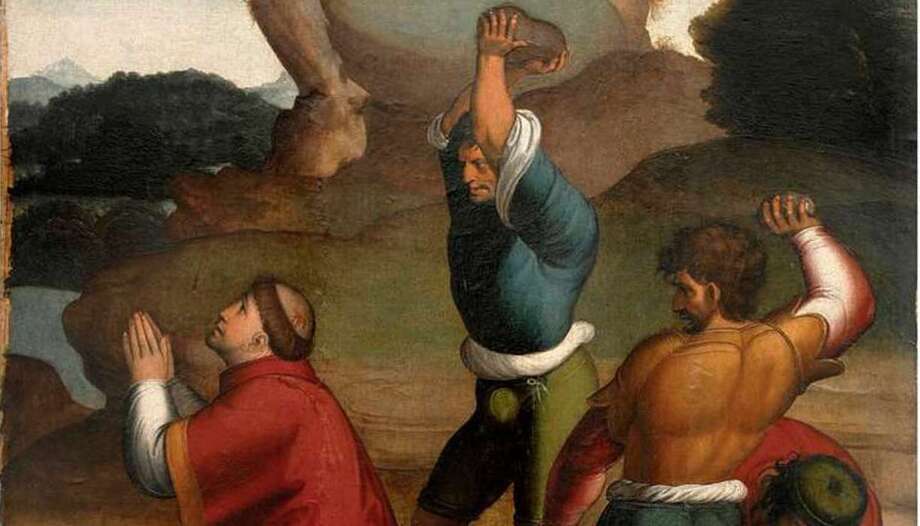A Greek or Jew educated in Hellenistic culture, St. Stephen was highly esteemed in the Jerusalem community. His name appears in the Acts of the Apostles (chapter 6) as the first among the seven chosen to help the Apostles in their mission, and he is described as "a man full of faith and of the Holy Spirit".
After explaining his imprisonment and incarceration, Chapter 7 of the Facts his discourse on the history of Israel, and his martyrdom. After his final words - "I see the heavens opened, and the Son of Man standing at the right hand of God" - they stoned him to death. He died with these words: "Lord, do not hold this sin against them". "Saul approved of his death," writes St. Luke.
The place of St. Stephen's martyrdom in Jerusalem is traditionally located outside the Damascus Gate, today the church of Saint-Etienne. In Christianity, the devotion St. Stephen was strong from the beginning. His martyrdom has been recorded in art. Dante speaks of him in the 'Divine Comedy'. In Italy alone, 14 municipalities bear his name.








